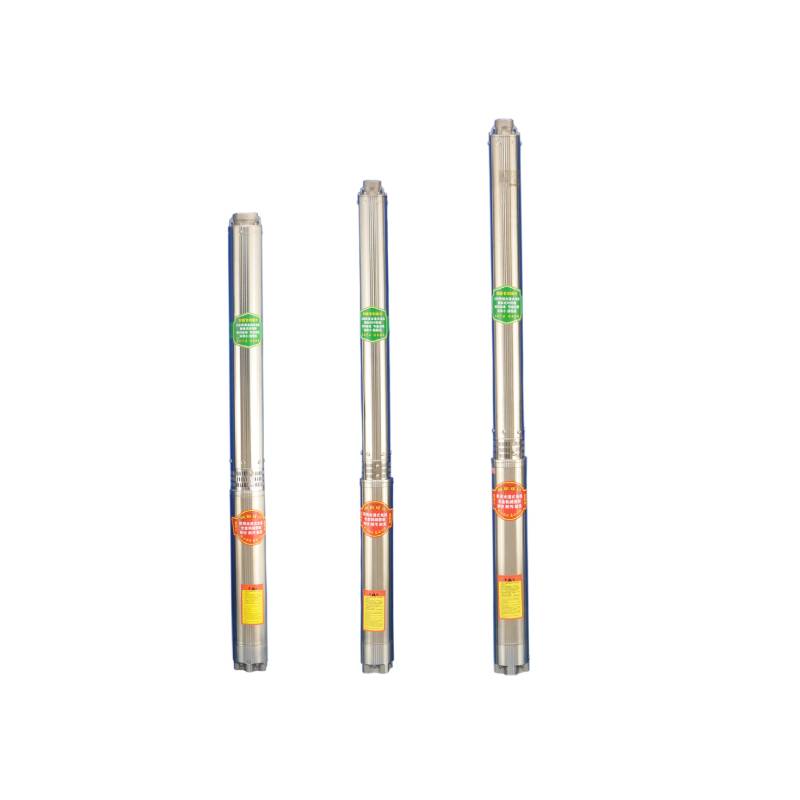Nov . 30, 2024 01:18 Back to list
Choosing the Right Submersible Pumps for Your Water Management Needs
Understanding Submersible Pumps A Comprehensive Guide
Submersible pumps are an essential component in various industries and applications. These pumps are designed to operate while submerged in fluid, which makes them ideal for a wide range of tasks, from dewatering to wastewater management, and even in agricultural irrigation. This article explores what submersible pumps are, how they work, their applications, and the benefits they offer.
What Are Submersible Pumps?
A submersible pump is a type of centrifugal pump that is hermetically sealed to prevent water and other fluids from entering the motor. As the name suggests, these pumps operate under water or other liquids, with the entire assembly submerged to ensure efficient performance. Typically constructed from corrosion-resistant materials, submersible pumps are designed to handle various liquids, including clean water, sewage, and other hazardous fluids.
How Do Submersible Pumps Work?
Submersible pumps function on a simple principle they create a difference in pressure that moves the liquid. When activated, the electric motor turns a shaft connected to impellers within the pump. These impellers spin at high speeds, creating a low-pressure area. The fluid then enters the pump through the intake, passes through the impellers, and is forced out through the discharge line at a higher pressure.
This mechanism allows submersible pumps to efficiently transfer large volumes of liquid over significant distances. The typical design ethos behind submersible pumps focuses on both performance and reliability, with many models featuring built-in sensors to monitor components and prevent overheating or mechanical failure.
Applications of Submersible Pumps
Submersible pumps are widely used across a variety of fields due to their versatility and reliability. Some of the common applications include
1. Sewage and Wastewater Management Submersible pumps are critical for pumping sewage and wastewater from homes and industries to treatment facilities. Their ability to handle solids and settleable materials makes them ideal for these applications.
2. Dewatering Construction sites often require dewatering processes to remove groundwater and prevent flooding. Submersible pumps are employed in these situations to manage water levels effectively.
3. Agricultural Irrigation Farmers utilize submersible pumps to extract water from wells or reservoirs to irrigate crops. Their energy efficiency and ability to work underwater make them ideal for agricultural applications.
submersable pumps

4. Well Pumps Submersible pumps are commonly used in residential and commercial water wells. They draw clean, potable water from deep underground sources, ensuring an uninterrupted supply of water.
5. Industrial Applications Various industrial processes, including chemical manufacturing and oil extraction, utilize submersible pumps for transferring fluids safely and efficiently.
Benefits of Submersible Pumps
The advantages of submersible pumps are numerous, making them a popular choice for many applications. Key benefits include
- Efficiency By being submerged, these pumps can move fluids more efficiently compared to surface-mounted pumps, which often lose energy due to suction lift.
- Space Saving Submersible pumps occupy less surface space, making them suitable for confined areas where traditional pumps might not fit.
- Reduced Noise Levels Since the pump is submerged, operational noise is significantly reduced, making it ideal for residential areas and noise-sensitive environments.
- Versatility Submersible pumps can handle a wide variety of fluids, including clean water, sludge, sewage, and even chemicals, depending on their design and materials.
- Lower Risk of Damage Being submerged protects the pump from environmental wear, extending its lifespan and ensuring reliable operation in harsh conditions.
Conclusion
Submersible pumps are vital tools in numerous industries and applications. Their unique design and functionality allow them to perform tasks effectively and efficiently. Understanding their operation, applications, and benefits is essential for professionals involved in fluid management, construction, agriculture, and various other sectors. As technology progresses, submersible pumps will continue to evolve, providing even greater efficiency and capabilities to meet the demands of a changing world.
-
Submersible Water Pump: The Efficient 'Power Pioneer' of the Underwater World
NewsJul.01,2025
-
Submersible Pond Pump: The Hidden Guardian of Water Landscape Ecology
NewsJul.01,2025
-
Stainless Well Pump: A Reliable and Durable Pumping Main Force
NewsJul.01,2025
-
Stainless Steel Submersible Pump: An Efficient and Versatile Tool for Underwater Operations
NewsJul.01,2025
-
Deep Well Submersible Pump: An Efficient 'Sucker' of Groundwater Sources
NewsJul.01,2025
-
Deep Water Well Pump: An Efficient 'Sucker' of Groundwater Sources
NewsJul.01,2025
-
 Submersible Water Pump: The Efficient 'Power Pioneer' of the Underwater WorldIn the field of hydraulic equipment, the Submersible Water Pump has become the core equipment for underwater operations and water resource transportation due to its unique design and excellent performance.Detail
Submersible Water Pump: The Efficient 'Power Pioneer' of the Underwater WorldIn the field of hydraulic equipment, the Submersible Water Pump has become the core equipment for underwater operations and water resource transportation due to its unique design and excellent performance.Detail -
 Submersible Pond Pump: The Hidden Guardian of Water Landscape EcologyIn courtyard landscapes, ecological ponds, and even small-scale water conservancy projects, there is a silent yet indispensable equipment - the Submersible Pond Pump.Detail
Submersible Pond Pump: The Hidden Guardian of Water Landscape EcologyIn courtyard landscapes, ecological ponds, and even small-scale water conservancy projects, there is a silent yet indispensable equipment - the Submersible Pond Pump.Detail -
 Stainless Well Pump: A Reliable and Durable Pumping Main ForceIn the field of water resource transportation, Stainless Well Pump has become the core equipment for various pumping scenarios with its excellent performance and reliable quality.Detail
Stainless Well Pump: A Reliable and Durable Pumping Main ForceIn the field of water resource transportation, Stainless Well Pump has become the core equipment for various pumping scenarios with its excellent performance and reliable quality.Detail
